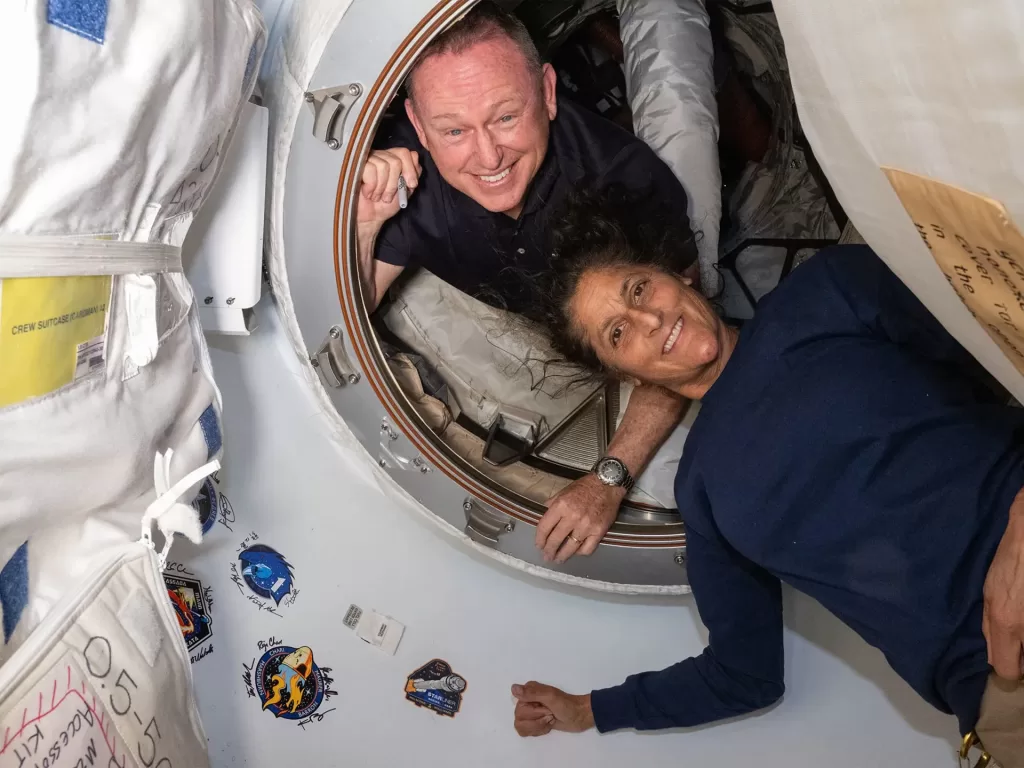Barry Wilmore and Sunita Williams were stranded after problems emerged with Boeing’s Starliner spacecraft.
NASA has said it will decide by the end of the month how it will bring home two astronauts who were stranded on the International Space Station (ISS) when their Starliner spacecraft malfunctioned.
Barry “Butch” Wilmore and Sunita “Suni” Williams took off for the ISS on June 5 as the crew on the Boeing-built Starliner’s first crewed flight.
They were meant to be in space for eight days but found themselves stuck on the ISS after the Starliner’s thrusters malfunctioned.
At a news conference on Wednesday, NASA said it was still analysing thruster data but would need to make a decision soon. The thrusters are crucial for holding the capsule in the right position when it descends from orbit.
“We’re reaching a point where that last week in August we really should be making a call, if not sooner,” said Ken Bowersox, associate administrator of NASA’s Space Operations Mission Directorate.
Safety chief Russ DeLoach added: “We don’t have enough insight and data to make some sort of simple, black-and-white calculation.”
NASA needs to decide whether to use the Starliner or a spacecraft from SpaceX, owned by Elon Musk.
If the space agency chose SpaceX, they could potentially launch their scheduled Crew-9 mission to the ISS on September 24 with just two astronauts rather than the usual four.
The Crew Dragon capsule would then be able to return to Earth with Wilmore and Williams in February 2025 – in what would amount to a major setback for Boeing.
Bowersox said the main issue with the Starliner was the propulsion system and that NASA had held “very honest discussions” with Boeing about the problem.
Boeing maintains Starliner could still bring the astronauts home safely. The company earlier this month posted a list of testing done on thrusters in space and on the ground since liftoff.
NASA chief astronaut Joe Acaba said Wilmore and Williams had prepared for the mission knowing of the potential risks.
“Human space flight is inherently risky, and as astronauts, we accept that as part of the job,” he said. “As professional astronauts, they’re prepared for this and they’re doing great.”
Wilmore, the mission commander, had spent 178 days in space before the Boeing mission, while Williams, the pilot, had 322 days under her belt.
There is currently a four-seat SpaceX capsule docked at the ISS, but there are also four other astronauts on the space station in addition to Wilmore and Williams.
Boeing and SpaceX were awarded multibillion-dollar contracts in 2014 to take NASA astronauts to the ISS following the end of the space shuttle programme in 2011.
SpaceX succeeded in its first crewed test in 2020 and has carried dozens of astronauts since.
